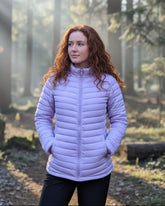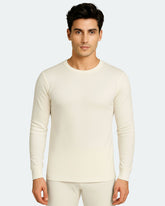What are Technical Textiles? By A Kosha
Technical textiles have a wide range of application in our everyday lives. They are getting more and more relevant since the environment around us is evolving or changing or affected by factors that our traditional textiles have not experienced before. ‘Air bags’ & ‘seat belts’ in our automobiles came into picture when safety became a concern in our quest to travel faster than sound and beyond. Likewise, a few of us were acquainted with PPE suits used in hospitals to aid protection again infections, but now most of us know how essential they are for our healthcare professionals while they fight the battle at the forefront of this ongoing pandemic. Their application ranges from the industrial professionals working deep down the earth’s surface to the astronauts exploring the cosmic space.
Examples of technical clothing outside the fashion & lifestyle space.
Technical textiles in Fashion & Lifestyle: When we think of technical textiles, function comes first and aesthetics take a back seat. However, in lifestyle space, clothing with technical features should be comfortable and design-rich since they are a part of our everyday wardrobe. Base layers for example are worn next to the skin and their primary

function is to enhance the protective feature of human skin. So while its essential that our Thermal Wear for Men keep us warm and wicks away the sweat, it’s also important for them to be breathable and gentle on the skin. Similarly, shell layers have a generalized essential function to protect us from rain, snow & wind. Synthetic fabrics are best known to serve this function as its easier to reinforce them with a layer of protective coating but they are not naturally breathable and kind to our skin. This is where design comes into the picture in order to develop a weave structure for these fabrics that is breathable, light-weight, and skin-friendly, at par with their natural counterparts.
Examples of technical clothing in fashion. L to R – Outerwear, Adventure Gear, Active wear.
Application of Technical Textiles: Textile fibers like Bamboo and Merino naturally have technical properties. For example, they wick away the moisture keeping our skin dry and avoid any bacterial or microbial growth. (www.ejfr.org) The fibers that are not naturally gifted with such features can be artificially treated to have them during the manufacturing process. This can be broadly conducted in three particular ways:
Some options used to create technical textiles or technical fabrics.
Future of Technical Textiles in India: There has been a significant amount of awareness among the Indian customers about the technical attributes that they expect their clothing should have. They understand how essential it is for an outerwear Packable Puffer Jacket for Men to be light-weight apart from being warm and water repellent. They also expect their t-shirt to stay dry while they are working out or running.

So far India has been hugely dependent on importing technical fabrics, chemicals and machinery required to manufacture technical clothing domestically. Natural technical yarns like Merino wool might be tough to manufacture locally since they need a specific environment for the sheep to thrive, but self-sustainability (atmanirbhar) can be achieved in domestically manufacturing fibers like bamboo, hemp & all the synthetic polymers.
In a positive step to actualize this thought, there is a proposal to set up a National Technical Textiles mission with an approved budget of INR 1500 crores. This will essentially help to reduce the USD 16 billion worth of technical textiles India imports every year.
Some prominent features used in technical clothing designed by Kosha.At Kosha, we create thoughtfully designed, feature rich, premium quality, affordable technical clothing for travel and winters. We are slowly adding all-weather designs to our offerings as well. Our designs are adventure gear inspired and real life tested. Use the discount code MYKOSHA to avail a 10% off your first order at oc.kosha.co | We have free shipping in India and are also shipping Internationally basis district Covid policies. We also offer lifetime repair for our products as we believe in reducing, reusing and recycling.
Follow our Know Your Garment series over at Instagram and Facebook to learn more. Say hello to us on Pinterest and LinkedIn.
This article was researched and written by Team Kosha’s Product Designer- Fazal Mahmood.
Editor’s Picks
Packable Puffer Jacket For Men
- From ₹2,520.00
₹8,400.00- From ₹2,520.00
- Unit price
- / per
Men's Full Sleeves Thermal | Merino Wool + Bamboo
- ₹2,280.00
₹7,600.00- ₹2,280.00
- Unit price
- / per
Alaskan Parka Jacket For Women - Slim Fit
- From ₹7,925.00
₹11,900.00- From ₹7,925.00
- Unit price
- / per
Lightweight Packable Puffer Jacket For Women
- ₹6,300.00
₹8,400.00- ₹6,300.00
- Unit price
- / per
Men's Merino Wool Cushioned Technical Socks
- ₹716.00
₹1,790.00- ₹716.00
- Unit price
- / per













